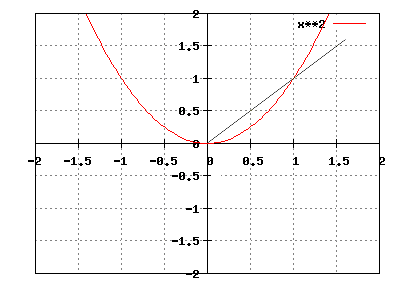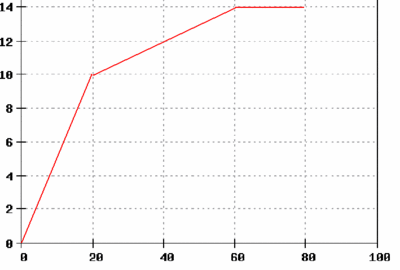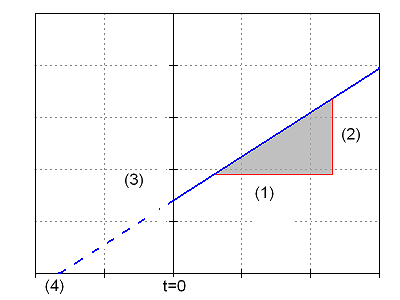User:Zlodziejka
i am a student at giselagymnasium
=Sandbox=Block quote
x(t) = x0+vt
[math]\Delta x[/math] = v [math]\Delta t[/math]
v = [math]\frac {x}{t}[/math]
v = [math]\frac{x_1 - x_0}{\Delta t}[/math]
x1 (t) = x2 (t)
x1 + v1t = x2 + v2t
x1 - x2 = (v2 - v1) * t
t = [math]\frac{x_1 - x_2}{v_2 - v_1}[/math]
= [math]\frac{173m - 25m}{28\ltmath\gt\frac{km}{h}[/math]}</math>
a) ges: Fahrzeuggeschwindigkeit
[math]\Delta x[/math] = 0 - 168 m = - 168m
[math]\Delta t[/math] = 12,5 sekunden
[math]\frac{\Delta x}{\Delta t}[/math] = v
v = - 13,44m/s = -48,3km/h
b) t = 2 min 53 sek
168m + ( -13,4m/s ) 173s
= - 2,16km
Schön, dass Sie an der Lösung dieser Aufgabe gearbeitet haben!--White Eagle 12:11, 22 October 2007 (CEST)
c) t =
übersetzung:
it follows in this case:
a= [math]\frac{v}{t}[/math]
(movement with constant aceleration from that rests)
if the venture owns already at the beginning of the movement a beginning speed [math]v_0[/math] so the functional equation is
v(t) = [math]v_0[/math] + at
the graph is origin-straight a postponed:
(1) [math]\Delta t[/math]
(2) [math]\Delta v[/math]
(3) [math]v_0[/math]
(4) [math]t_0[/math]
It turns out for a>0 a movement with consistently
acceleration, for a<0 a movement with consistently speed and for a=0 a movement with consistently delay ( falling graph)
!Attention! This time the formula a = [math]\frac{v}{t}[/math] is wrong!!
To be used is:
a is also the gradient of the line.
Definition:The acceleration a is the gradient of the t-v-line.
The unit of the acceleration is m/s².
2.3: Accelerationtest
| Time it in s | Speed v in m/s |
|---|---|
| 0 | 0
|
| 5 | 1 |
A testinstitution analyses the movement of a vehicle.The results are:
a) Draw a t-v-diagramm! (10s=1 cm, 1m/s=1 cm)
b) Name the type of movement in the particular timezones!
c) Find out the accelerations by using the graph!
5.7 a) geg: r = 1,0 m ges : v
F(gewicht) = F(zentral)
m w2 r = m g /:m
w 2 = r g
w 2 = g : r
w 2 = 9,81 N/Kg : 1,0m
w = [math]9,81[/math]
w = 3,13
v = w r
v = 3,13 * 1m
v = 3,13 m/s
b)
Rotor auf dem oktoberfest, mit Durchmesser d ,Boden wird abgesenkt ohne dass Körper (m= ...)abgleitet Welche Geschwindigkeit(wand)??


